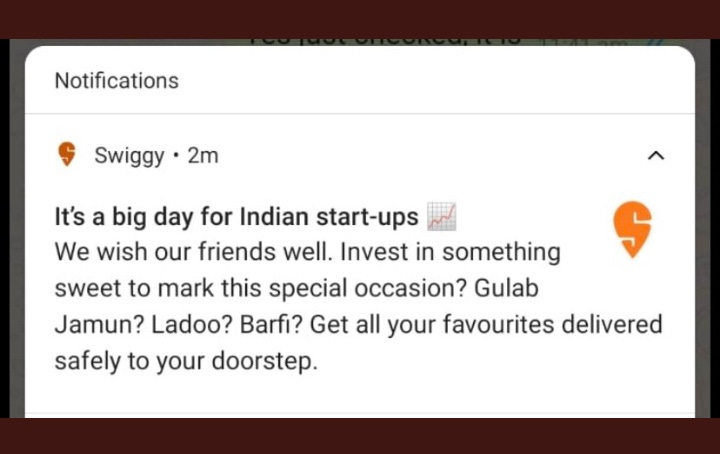Everyone’s heard of the latest Zomato IPO and its crazy valuation (unless you’ve been living under a rock maybe). For the uninitiated, it was priced at more than $8 billion for the IPO and the valuation crossed $16 billion within hours of its listing on the bourses. That made Zomato a part of the 50 most valuable companies in India 🤯.
That sparked an obvious debate. While certain brands sent good vibes to Zomato :

even Zomato’s only major competitor joined in -
Ace investors like Rakesh Jhunjhunwala were quite open about their concerns around high valuations for the Big Tech IPOs, and even went ahead to say, he need not go to every party in town. "Hangover comes only the next day!"
Nevertheless, in almost every discussion around the cause of heavy valuation, you will find the discussion about ‘ghost kitchens’ or ‘cloud kitchens’ and their potential. Whether for the food-tech IPOs or otherwise, this is becoming an important trend. So what is it all about?
Remember the good ol’ days when food delivery had just begun? We all knew our favourite restaurants, and dialled them directly and placed orders. Fast forward to today, we search for our latest craving on the food-delivery app and choose from the restaurant that offers the most delicious-looking picture of the food or the most cost-effective alternative (and also good reviews, if available).
That is where cloud kitchens come in. They are basically kitchens that offer no dine-in and no take-away to direct consumers. They are built only for delivery through apps. That means they save on rentals (as they do not need that fancy ground floor space at prime locations), staff cost (no fancy waiters), and space (no dine-in tables needed).
They also save on running costs - ingredients (economies of scale) and process efficiency optimised for delivery.
While it may seem like a distant concept by the look of it, it is already here. Heard of Behrouz Biryani? Or Faasos? Or Oven Story? Yeah, they are all ghost kitchens.
It seems that the likes of Zomato might eventually place cloud kitchens all over the country - benefit heavily from the lower costs and ultimately make bumper profits for its investors. The data around consumer preferences (sorted by location, gender, age) might come in handy then.
On the face of it, it seems like a very profitable venture. But it has its own fair share of problems.
Quality. With no customer walk-ins, the consumers might not be very sure of the quality of ingredients being used.
Death of dine-in? Cloud kitchens, by their very nature, will thrive on the death of MSMEs running food businesses in India. That includes both dine-in and takeaway eateries.
National Restaurant Association of India. The NRAI is taking the upcoming duopoly in the food-delivery sector very seriously and has already raised concerns about the high commissions they charge from restaurant partners and the high “visibility fees” that restaurants are forced to pay.
How the industry will take this new trend is yet to be seen. An even larger question is - whether the likes of Swiggy and Zomato will benefit from this new fad.
Tweet your thoughts to us @advthinktank.
Also, we love feedback. You may write in reply to this email.
Lastly, don’t forget to share this post (we know you loved it!). An increasing number of subscribers drives us for more and better content. If this email was forwarded to you, you can subscribe here.
Surbhi Singhal is a Chartered Accountant and a Company Secretary; and the founder of Advance Thinktank. The company specializes in preparing custom research reports regarding investment opportunities in India, tailored to the client's needs.








